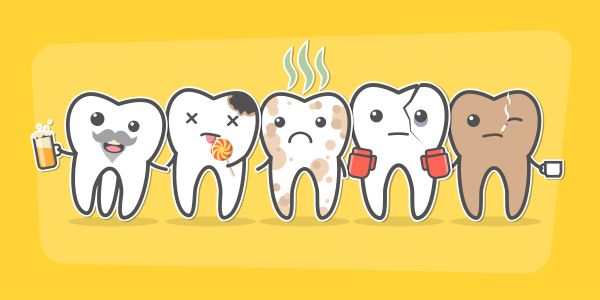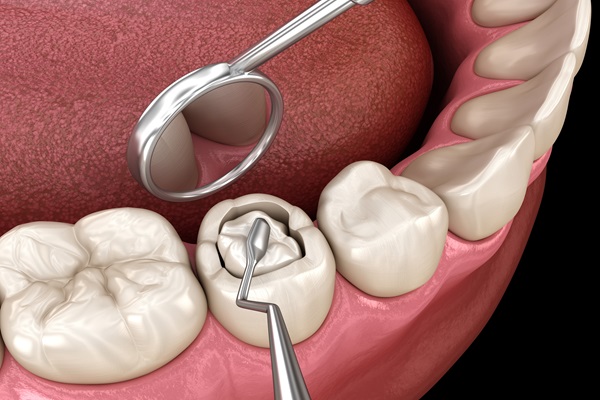What Dental Bonding Can Do for Your Smile

Dental bonding is a treatment that involves the application of tooth-colored composite resin to the tooth. Dental bonding is done to enhance the tooth’s appearance and cover cosmetic defects and abnormalities.
Types of dental bonding
The procedure is split into two categories — adhesive bonding and direct composite bonding. Adhesive bonding is used to affix other dental restorations such as veneers, crowns or bridges to the tooth. Dental bonding is usually used to fix the following cosmetic dental issues:
- Discolored teeth: Bonding can be used to mask stubborn stains and discolorations that cannot be removed with teeth whitening
- Chipped teeth: Composite material can be applied to the chipped part of the tooth to hide the impairment and improve the tooth’s appearance
- Unevenly-sized teeth: The dentist can apply resin on the tooth’s edges or surfaces to make it look larger or longer than it is
The composite resin used in dental bonding is also used for tooth-colored dental fillings. The dentist will carefully choose a resin shade that matches the teeth so that it would be hard to distinguish the bonding material after treatment is complete. The results will look so natural that only the patient and the dentist will be able to tell that the tooth has been repaired.
Why consider dental bonding?
Dental bonding is a multipurpose, common, and affordable cosmetic dental procedure. It can hide multiple cosmetic defects on a tooth, or it could be applied on several teeth to hide unwanted features. Patients usually choose dental bonding over other cosmetic options such as porcelain veneers because it is conservative — meaning it does not require scraping off part of the enamel, which ultimately reduces the risks and side effects.
The dental bonding process is mostly painless, and in most situations, does not require the administration of local anesthesia or other numbing agents before the treatment begins. The process is quick, simple and safe when handled by an experienced dentist.
Eligibility for dental bonding
Patients who are interested in dental bonding must first undergo an evaluation with a dentist. The dental expert will examine the patient’s oral health to ensure the bonding is safe and would be the most suitable treatment. If it is a minor discoloration, the dentist may suggest teeth whitening procedures at first. For severe cracks and chips that may affect the structural integrity and strength of the tooth, then the dentist might recommend getting a dental crown instead. This will help to protect the tooth against further damages, which may not be possible with dental bonding.
Dental bonding is mostly used on the front teeth since patients often care more about the aesthetic appeal of these teeth. The procedure is safe for all patients and may last for a few years with proper dental care.
Final note
If you have imperfections on your teeth, you may be able to transform your smile’s appearance by opting for dental bonding. The treatment offers a quick and cost-effective way to get a brighter smile.
Request an appointment here: https://www.emergencydentistinorlando.com or call Maitland Square Dentistry at (407) 337-1112 for an appointment in our Maitland office.
Check out what others are saying about our services on Yelp: Read our Yelp reviews.
Related Posts
The lifespan of a dental filling is limited. Due to normal wear and tear, a replacement may be necessary. When a filling deteriorates or comes loose, your tooth loses the protection that it has against injury and decay and will be more vulnerable to dangerous bacteria. To avoid more dental issues in the future, you…
A dental crown can save a tooth that is in danger of extraction. Dental crowns serve a dual purpose. They reinforce the tooth structure and improve the appearance of the smile at the same time. This means that a dentist could recommend a crown as a treatment for tooth decay or injury. A cosmetic dentist…
The time and effort that go into fitting a dental crown suggest a permanent restoration. Maybe it is the fact that installing a dental crown often requires multiple dentist visits. It could be the permanence that comes with the removal of enamel before the placement of a crown. Dental crowns that sit on dental implants…
A dental crown is a versatile restoration that can be used to address a wide range of dental issues like a cracked, chipped, decayed, deformed, or broken tooth. The crown covers up the part of the tooth that is visible above the gums, protecting it from further damage and acids made by oral bacteria.The severity…


